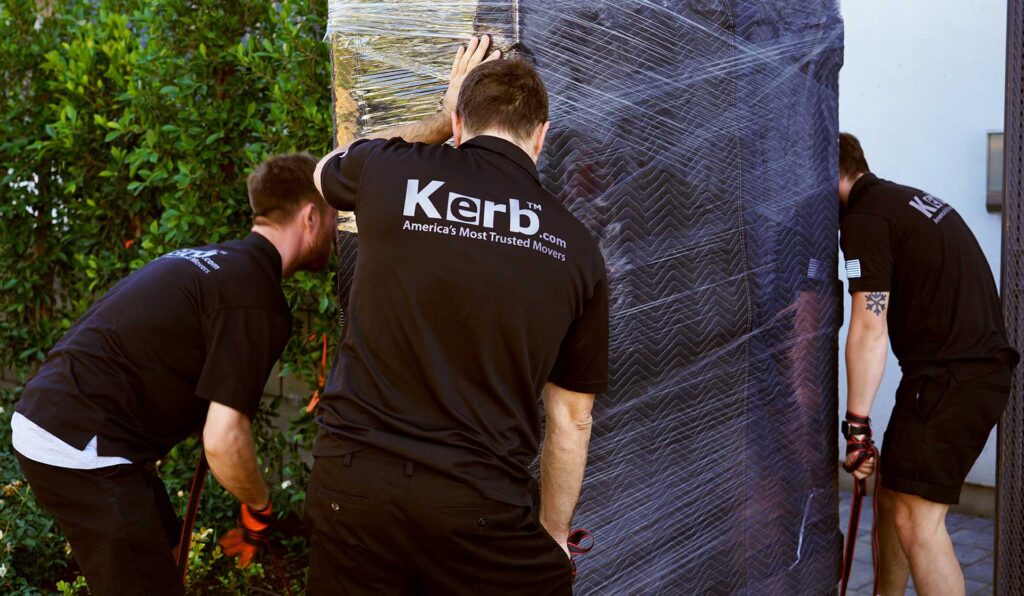When thinking about relocation, it might look as easy as pie, at first glance. Yet, to perform this demanding work successfully, you should be familiar with the proper packing tips for moving. When you have enough knowledge about long-distance moving, your preparation steps won’t be too exhausting and you will have plenty of time to organize everything properly.
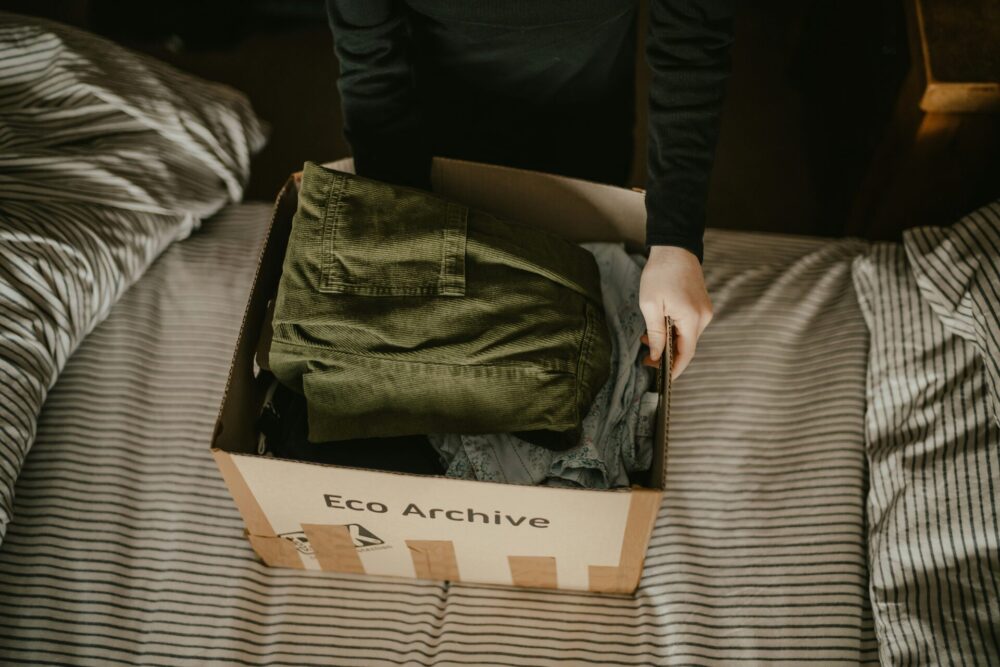
The truth is this process is elbow grease and requires a lot of strategic thought. In case you’re not a professional packer and planning to relocate DIY, you should learn as much as possible about tips for packing to move. Don’t worry, our moving tips and relocation hacks will help you overcome all difficulties related to moving across the country.
How Do I Organize Packing to Move
Relocation is a complicated and stressful process. To perform it properly, you should have pre-moving plans, as well as a to-do list on the relocation day, and steps for the period after moving in. Still, if you do the packaging appropriately, you can rest assured that your cross country relocation will go smoothly. Stress-free stowing probably doesn’t exist. But, what you can do is to reduce the possibility of tension and difficult situations as much as possible.
So, what to do?
First, gather moving supplies and systematically go room-by-room until the process is done. Consider organizing items based on room or common functions. This method will help keep track of your things during relocation day and unpack at your new home.
How to Organize Items Before Moving
To be efficient and organized, you should follow this great tip: go room by room and sort belongings in three categories. The first one should be the things you plan to keep, the second items to donate, and the third is stuff for the garbage. This way you’ll pack only the stuff you need and prevent something that usually happens to everyone during relocation – you will take care of most commonly forgotten things to pack.
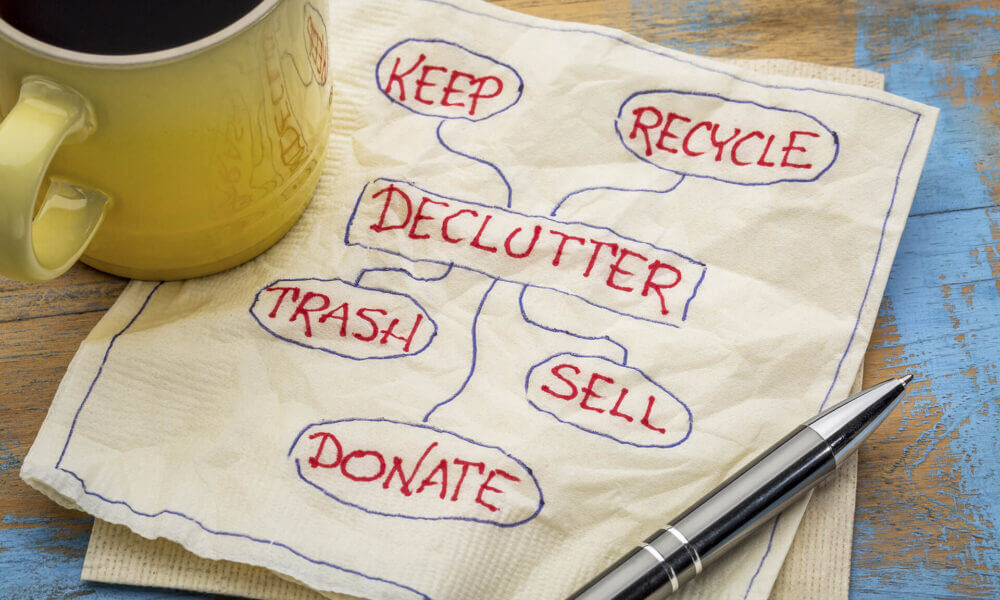
When Should You Start Packing to Move
One of the worst things you can do before you even start wrapping up your belongings is to procrastinate, wondering if all those belongings are really yours. So, don’t delay the start of packaging, thinking you have enough time. You’ll see, whenever you start, you’ll be sorry that you didn’t begin earlier.
Start as Soon as Possible
You know how the saying goes – The early bird gets the worm. If you want to avoid moving stress, the earlier you start, the better it will be, and you’ll feel good. Perhaps the best choice is to start months before. Have in mind that for the average 3-bedroom home, you need about 4 full days packing, with your free time available and all tools and supplies at your disposal. That being said, this is an ideal option. Still, leave space for unpredictable events, because you never know what can happen.

Where to Start Packing Your Items
If you’re wondering where to start, the best answer would be – start with your kitchen. Actually, start anywhere, just make sure not to leave the kitchen to the last minute. Believe us, when you finish storing this room, you’re almost done with the entire packaging.
Start from the Kitchen, and Here’s Why
It’s well-known that kitchens take the longest to stow. They are so crammed with dishes, appliances, cutleries, breakable and fragile elements, that you’ll go crazy if you leave the packaging for the eleventh hour.
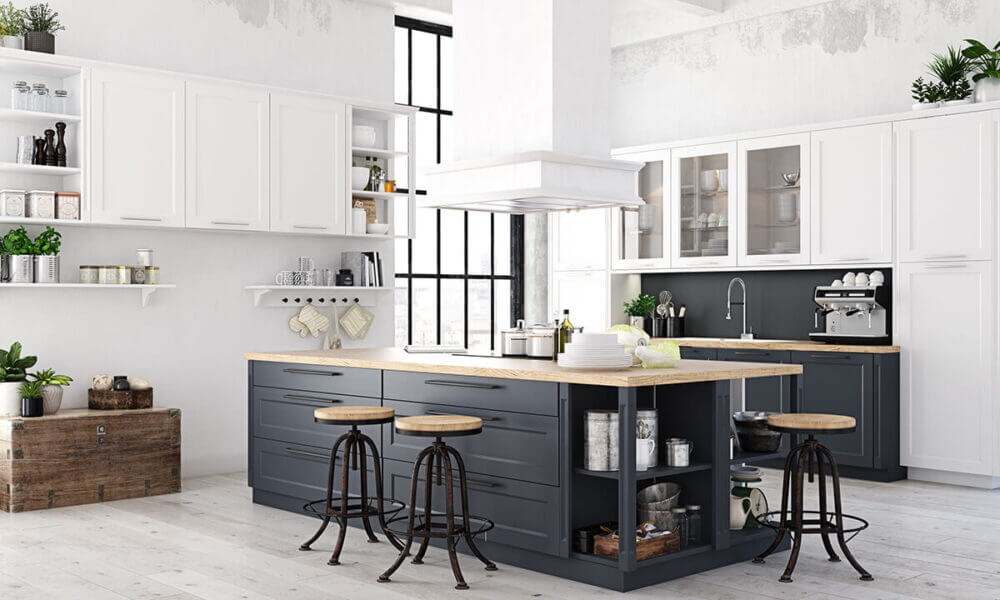
Start With the Right Boxes, and They Don’t Have to Be New
If you’re wondering where to get free moving boxes, there are plenty of ways to find gratis containers and crates. Just look around you, and you’ll see plenty of possibilities – from grocery and liquor stores to bookstores, libraries, copy centers, and local schools. Relocation is an expensive process, so why not save a few bucks if possible.
Get the Rest of Packing Supplies
In addition to strong and durable containers, you should obtain the rest of the packing materials for moving, such as:
- Bubble wrap
- Packing paper
- Polystyrene foam (peanuts)
- Plastic wrap
- Sealing tape
- Markers and scissors
Label Your Boxes
If you forget to label each of your packages, you won’t be able to know what is packed inside. You can put labels in different colors, the same for each room and its content in the box, or use markers. Make sure to label every box on both sides with the following:
- To which room its content belongs
- The exact contents
- “Fragile” or “This side up”
Besides Packing List, Create a Don’t Pack List
Some bags and bins don’t need to be loaded onto the truck with the rest of your belongings. These are essentials that should be near you during transport, such as toilet paper, snacks, phone chargers, spare clothes, cutlery and utensils, toiletries, etc. This box should be clearly labeled in order not to mix it with other containers.
Obtain Your Own Setup Kit – You’ll Use It More Than You Think
In addition to a survival kit, the setup kit is something you should keep in handy. During packaging and after, when unpacking and assembling the shelves, chairs, or bed frames, this is something you shouldn’t forget to stow.
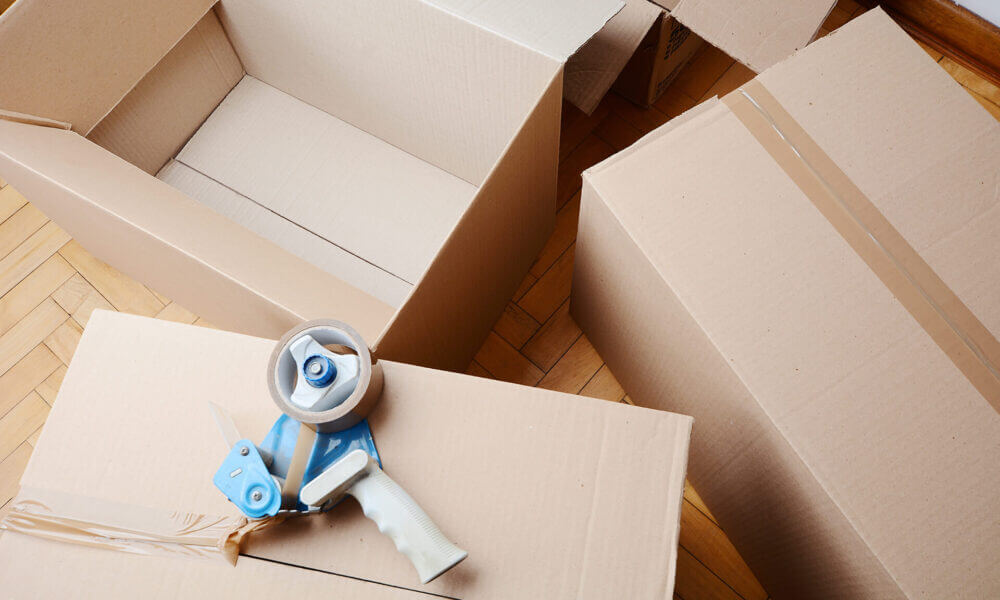
What Are Best Packing Tips for Moving
Preliminary measures are important before storing and placing belongings in the packages. And you’ll agree with us – you don’t want something to go wrong, such as breaking valuable china or your laptop. So, let’s find out what to pay attention to before using packaging materials and sealing your boxes.
Tips for Packing for a Move
#1 Don't Use Boxes and Bins Without Lids
You can use all your hampers and bins to pack belongings. This way you’ll get additional packaging supplies and use all available options. Just pay attention to their lids – they should be functional to prevent content from spilling and making a mess.
#2 Put Heavy Items on the Bottom
If you don’t want to crush or squeeze lighter belongings, heavy things should be placed in the bottom. They will also hold the packages right side up.
#3 Small and Medium-Sized Boxes Are Recommended
Avoid large boxes and rather choose smaller and medium-sized packages. They won’t allow you to overpack and have a problem when the time for lifting comes.
#4 Newsprint, Towels, Sheets or Linens Are Perfect to Have
You can use newspapers for wrapping around some breakables, especially those that won’t leave print marks on the surfaces after unpacking.
#5 Think About Any Spill-Risks Products
Some toiletries products, such as shampoos, oils, and liquid soaps, can be spilled during transportation. Consider sealing them with tape and placing them in a plastic bag.
#6 There Are Things You Cannot Pack
Before the relocation day, talk with your state to state movers about stuff that is not allowed to move. This usually includes:
- Hazardous materials
- Perishables
- Chemicals
- Pets (if you’re moving with pets, they should be with you in your vehicle)
#7 The Most Demanding Items to Pack
Oddly shaped belongings, such as vases and lamps, are fragile and require special care. With plenty of bubble wrap and cushioning, you just can’t go wrong. The same goes for dishes and glasses – they should be placed in reinforced cartons. The safest way to stow plates is to stack them on the side with a bubble wrap or towels between the layers.
Also, electronic devices are challenging when it comes to stowing. If you have their original packagings, you shouldn’t worry about a thing. Otherwise, get sturdy boxes, and a lot of padding and cushioning. Small decorative pillows on the top and the bottom will do an excellent job.
#8 Create a Labeling System
With prompt labeling, the unpacking process will be a piece of cake. Your movers will know where to put boxes in your new home, and you’ll be familiar with the content of each of your packages.

How Do You Pack Clothes for Moving
Folding and stowing clothes might look like a demanding job, but that’s just at first glance. The good thing with soft pieces is that they can serve as cushioning, and socks can be excellent storage for breakable items, such as glasses.
Leave Your Clothes on the Hanger and Don’t Empty Your Drawers
When it comes to apparel on the hanger, you need to find large garbage bags. Gather several pieces of clothes, put them into bags, and tie on the top. With drawers, it will be even easier. Get plastic wrap and enwrap the whole drawer with its entire content. This way, you can use a drawer as a box, and unpacking will be easy.
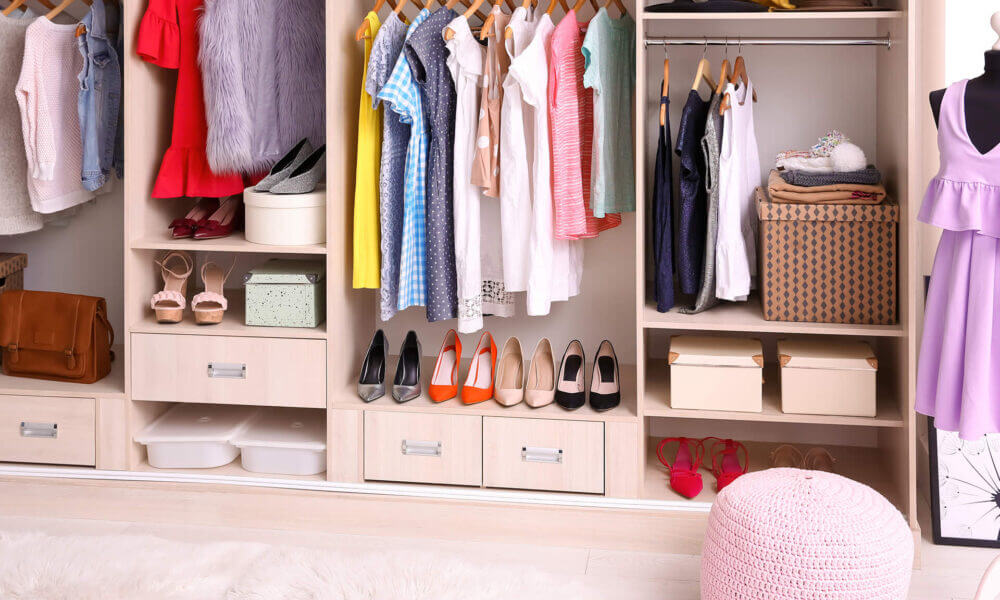
Additional Tips
There are never enough words of advice when you’re dealing with all your household items and different tidbits. Here are some additional suggestions that are no less important but are often overlooked or taken for granted.
Pack the Essentials With You
Hammer and toothbrush are not the only things you should have beside you. Keep in mind that medications, as well as plastic plates and cups, are more than cherished possessions to have during the trip.
Expensive Pieces of Art Require Special Treatment
It’s needless to say that paintings and sculptures are among the most valuable belongings you possess. Also, they are the most fragile too. It might be risky to pack them DIY, so consider your movers’ help with packaging materials – they can provide you with special crating options or mirror boxes.
Think About Your New Home
Don’t forget to take care of some essentials related to your future home, such as:
- Pre-clean the kitchen and bathroom
- Schedule utilities
- Change the address a week before
Make Copies of Important Documents
Anything can happen during a long-distance move. So, make sure to copy all your important documents and store them in a briefcase or separate box safely.
Stress-Free Packing and Moving Is Possible
If you’re looking for a stress-free relocation and storing process, be sure it doesn’t exist. Every interstate moving requires lots of backbreaking work, decluttering, and creating a moving to-do list. Still, if you organize yourself promptly and adjust to the situation, you can overcome relocation stress. Here are some best packing tips for moving that will prevent panic and anxiety:
- Give yourself enough time to choose long-distance movers and, if needed, their moving, packing, and storage services
- Be organized – whether you’re planning to donate furniture or wondering how to move a piano, keep in mind that organization is the key to success – from the moving away party until getting the things you need for your first apartment
- If you’re feeling anxious, your friends and family can be excellent support helping you minimize the relocation stress
- Your sleep should be a priority during a move


